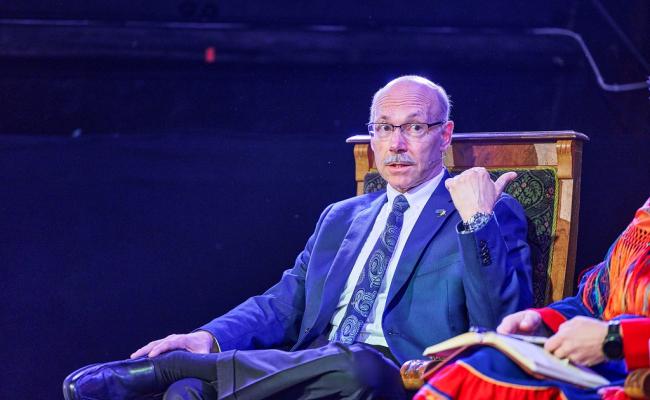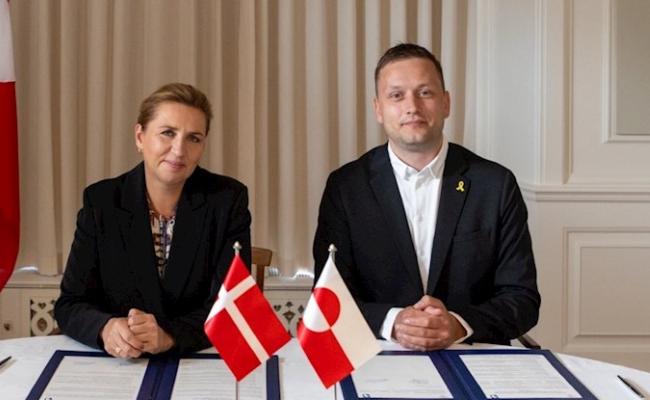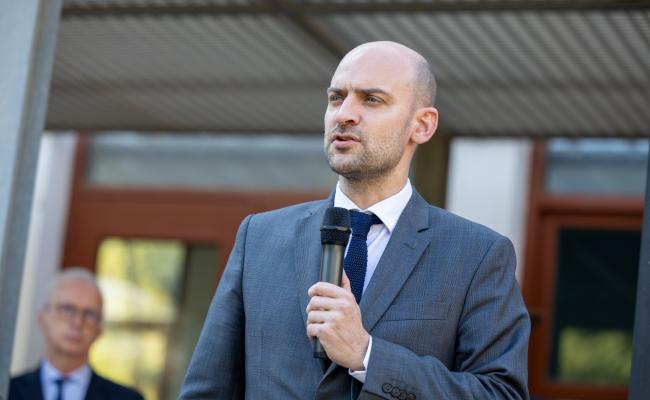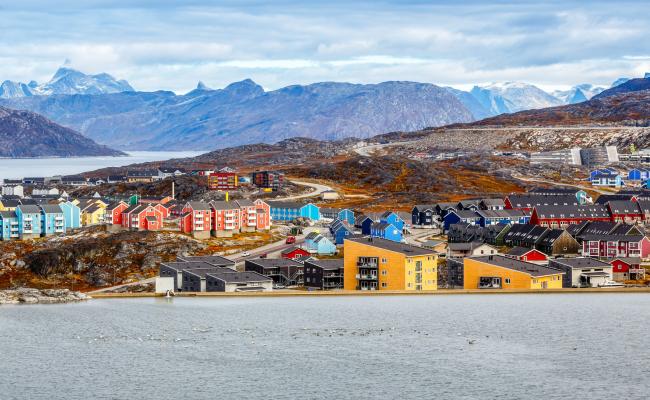Arctic Security Conference 2025: Denmark, Greenland and Iceland's Reactions To Trump

Ulrik Pram Gad, Senior Researcher at the Danish Institute for International Studies, at the Arctic Security Conference in Oslo, organized by the Fridtjof Nansen Institute. (Photo: Bård Gudim/FNI)
Oslo (High North News): "Just a year and a half ago, Greenland's foreign policy strategy was basically one big invitation to the US for cooperation. Then Trump destroyed the trust and interest from Greenland," says Ulrik Pram Gad, Senior Researcher at the Danish Institute for International Studies.
The Danish Armed Forces recently carried out the major Arctic Light 2025 exercise in Greenland, together with forces from France, Germany, Sweden, and Norway.
Ulrik Pram Gad, Senior Researcher at the Danish Institute for International Studies (DIIS), believes this exercise included several signals to US President Donald Trump in particular.
The backdrop is Trump's many statements expressing a desire for American control over Greenland with references to national and international security.
"The main message of the exercise is directed toward Trump along the following lines: "Okay, you say there is a problem here. We, as European allies, are naturally willing to contribute. We might not see all these Chinese and Russian ships, which the American president claims he can see without binoculars, but if it is important to you, we will step up," says Gad at the recent Arctic Security Conference in Oslo.
Also read
Entirely different reception
The Danish Armed Forces' increased presence in Greenland (initiated in June) and the execution of Arctic Light in September have been closely coordinated with Greenland's government in order to ensure local involvement.
Underway, the Joint Arctic Command Denmark has organized visitation days and citizen meetings.
"The message to the Americans is that we can do this in a manner that is well-received by the Greenlandic population, while you have messed it up for yourselves," states the DIIS researcher and continues:
"Just a year and a half ago, Greenland's foreign policy strategy was basically one big invitation to the US for cooperation. Then Trump destroyed the trust and interest from Greenland even before he took office as president."
A NATO matter
The allied participation in the exercise also contributes to emphasising that Greenland is NATO territory, Gad points out.
"Thirdly, the following message is conveyed to the Trump Administation: If you carry on with these ideas about taking over Greenland against the country's will and in violation of the soverignty of the Kingdom Denmark, it is not just a matter between you on the one side and Greenland and Denmark on the other; it is also a matter that involves the alliance with all the European countries."
In addition, the exercise signals focus on public security for the Greenlanders, notes the DIIS researcher.
"The Greenlandic population is not really worried about Chinese or Russian invasion. They are perhaps instead worried about critical infrastructure, so much of the exercise revolves around protecting such infrastructure against sabotage," says Gad.
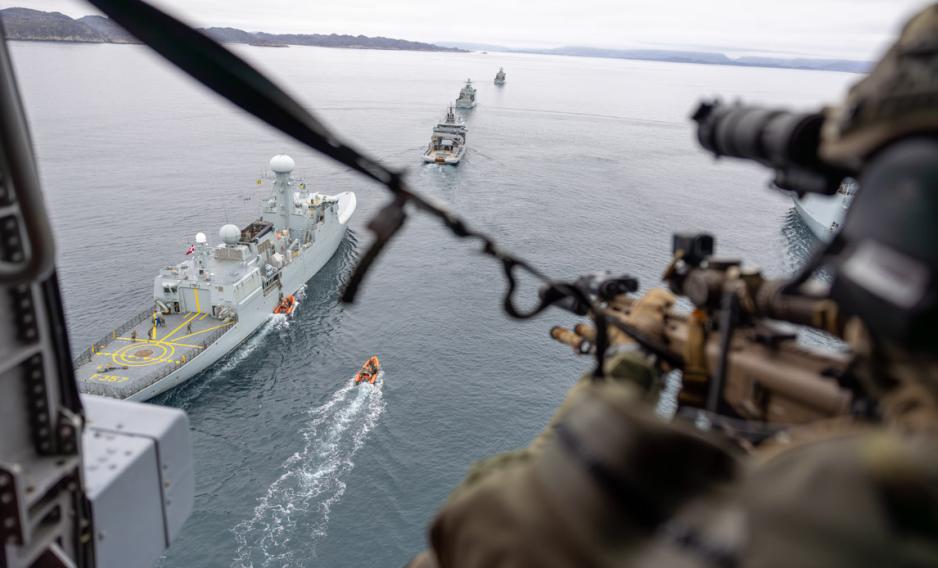
Maritime and air forces in action off Nuuk during the Arctic Light exercise. (Photo: Rune Dyrholm/the Danish Armed Forces)
Has startled Iceland
In Iceland, Trump's statements on the annexation of Greenland and Canada have led to a watershed in the debate, says Gudbjörg Ríkey Thoroddsen Hauksdóttir at the Arctic Security Conference. She is a PhD Candidate at the Belfer Center, Harvard Kennedy School.
"Iceland does not have its own armed forces, and even using the term 'security' has been taboo. The invasion of Ukraine changed this to a large extent. Never before have there been more discussions about security. But as Iceland's former minister of foreign affairs, Thórdís Kolbrún R. Gylfadóttir, said: A few statements from Trump changed the discussion more than the war in Ukraine ever did," says Hauksdóttir.

Gudbjörg Ríkey Thoroddsen Hauksdóttir, PhD Candidate at the Belfer Center, Harvard Kennedy School. (Photo: Bård Gudim/FNI)
In the wake of this, several interesting things are happening at the same time, she points out.
"If you talk to people working in Iceland's Ministry of Foreign Affairs and look at statements from the government, the US is still our foremost ally and there is still much cooperation taking place. The US is expanding its military infrastructure in Keflavík," states Hauksdóttir and continues:
"On the other side, Icelanders' trust in the US has significantly decreased. 'If Trump takes Greenland, are we next?' is something I sense people are thinking. And while the government says that the US is still our 'best friend,' it also emphasizes that we will cooperate with the Nordic region and the Joint Force Expeditionary Force [British-led multinational response force, ed. note] and that we will have a referendum on EU membership. So much is happening all at once."



